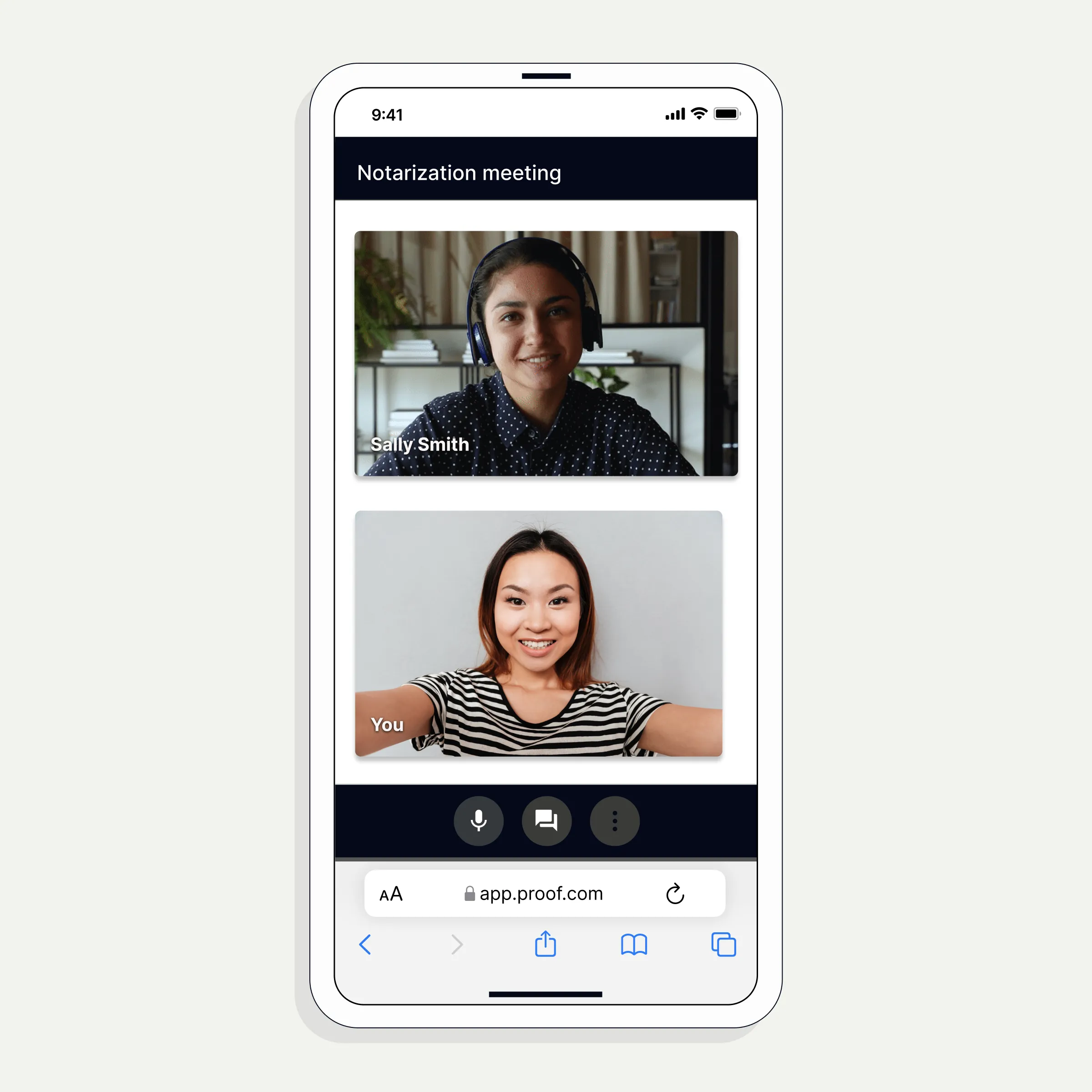
What Is Online Notarization?
Notarizations are fundamental to some of life’s most important moments. It’s the final step in a young couple buying their first home, a retiree cashing out their 401K, or someone standing up a medical power of attorney for their elderly parents.
The notarization process has long meant the same thing for everyone: meeting with a notary in person, signing your documents in their presence, and having the notary apply their wet stamp or raised seal – adding a layer of trust to the transaction.
That all changed in 2012, when Virginia enacted the nation’s first online notarization bill, enabling notaries to connect with signers across the globe. With the strike of a pen, notarizations went digital.
What is online notarization, and how does it work?
Here’s what you need to know about online notarization, and why it offers a simpler, safer, and smarter way for you to get a document notarized.
A notary public is a public official appointed by a state government to help deter fraud by witnessing the signing of important documents.
The notarization process dates back to Ancient Egypt, where scribes would record personal letters, official proclamations, and tax records. Thousands of years later, notaries continue to serve a vital public service by empowering life’s most important moments.
The three core elements of a traditional, in-person notarization have been the same for centuries:
- The notary verifies the signer’s identity.
- The notary confirms that the signer understands the contents of the documents and is executing it of their own free will.
- The notary completes their notarial certificate and applies their seal.
While there are differences between in-person and online notarization processes, notarizing a document online has numerous advantages.
Online notarization has all the core components of a traditional notarization, but includes modern technologies to make the process simpler, smarter, and safer than an in-person notarization. This includes using three factors of authentication:
- Something you know: Online notarization uses signer information (name, address, date of birth, and the last four digits of their U.S. Social Security Number) to populate knowledge-based challenge questions from public records databases.
- Something you have: Signers then capture the front and back of their government-issued photo ID. The image is then analyzed by an automated system to verify its authenticity in a process called Credential Analysis, and the results of this analysis are presented to the notary for validation.
- Something you are: An online notarization is still a notarization. That’s why the notary is the final safeguard in the online notarization process.
This multi-factor authentication process helps combat fraudulent transactions and gives notaries greater certainty when it comes to signer identity.
Online notarization is available 24/7 – seriously
It’s actually harder than you’d think to find a notary these days.
It’s not because notaries are less common. In fact, the National Notary Association found more than 4.5 million notaries nationwide during its most recent census in 2017. That includes the addition of nearly 80,000 newly commissioned notaries between 2012 and 2017.
The reality is that many businesses have placed profits over perks. Why offer a free or low-cost service when that time could be spent on revenue-driving activities?
The few places you might think to look for a notary – your local bank, title company, or small business service center – may no longer staff notaries, or they may refuse to handle certain documents. You could scour online search engines and phone directories for hours without finding the help you need.
Then, when you do find a notary, it often comes at the cost of convenience. Maybe you have to skip your lunch break to drive across town and wait in line, or you might have to schedule a specific date, time, and location with a mobile notary – for an additional fee.
Online notarization connects signers with notaries 24/7, offering the type of convenience and control that consumers have come to expect.
Online notarization offers a better experience for everyone
The benefits of online notarization aren’t just limited to signers and businesses. Online notarization has also changed the game for notaries.
In states that have passed an online notarization bill, properly commissioned notaries can join platforms and take calls from signers anytime – no matter where that signer is located. Notaries who were once limited by their locality now have access to a global community of consumers in need.
With access to a wider network of signers, notaries can often do more business in shorter time, which may boost their overall revenue potential. And because these transactions occur entirely online, the money they earn can be kept in their pockets and out of their gas tanks.
That’s a win-win for everyone.

